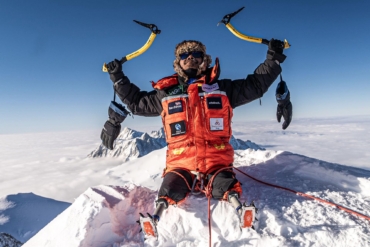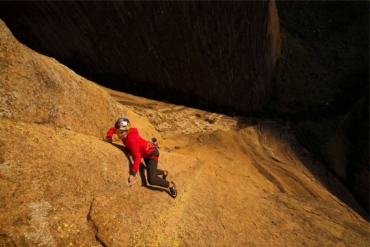Citing “non-action” on the part of the International Federation of Sport Climbing (IFSC), two doctors resigned from voluntary positions on the IFSC Medical Commission.
Dr. Volker Schöffl, a voluntary member of the International Federation of Sport Climbing’s medical commission, resigned from his post today. He alleges that the commission, which oversees competitive sport climbing at an international level, has stymied action that could protect climbers’ health.
The issue at hand concerns Relative Energy Deficiency in Sport (RED-S), a condition most simply described as not eating enough calories to keep your body healthy for the activities you put it through. While the cause is deceptively simple, the results can be catastrophic.
RED-S can cause disrupted menstrual cycles, frequent illnesses, gastrointestinal upset, and degradation of nearly every bodily system needed to participate in physical activities. It affects resting metabolism, muscular strength, glycogen stores, and more.
“I have been a #MedCom member since the inauguration of the IFSC in 2009. During that time frame, we achieved many goals for the well-being of our athletes. However, the current politics with regards to RED-S cannot be accepted. We have worked for more than ten years on the topic. We have collected numerous data, have measured BMI/MI at every WorldCup last year and have developed very profound plans how to detect and help athletes with such problems,” Dr. Volker Schöffl wrote in an Instagram post earlier this week.
GearJunkie reached out to the IFSC for comment. The IFSC directed our reporter to a press release issued today.
“The IFSC is aligned with the International Olympic Committee (IOC) with regards to the health of athletes: as announced in January this year, from 2024, the IFSC will adopt a holistic approach not based solely on BMI parameters, which alone are not sufficient to determine critical health condition,” the organization said in the release, alluding to an IFSC decision to drop BMI testing prior to competitions.
“We have pointed out the problem and possible solutions to the sports director and board continuously and repeatedly. However, the only acknowledgment we have received has consisted of defamation and discouragement. In short, the IFSC may not be willing at all to undertake further action regarding this important health issue of its athletes and is actively delaying and slowing down any decisions that could lead to much-needed action,” Schöffl continued.
Planet Mountain reported that Dr. Eugen Burtscher, the president of the Medical Commission, also resigned.
RED-S in Competitive Climbing
While RED-S can affect athletes of all genders, research into the phenomenon first began with investigations into the so-called Female Athlete Triad: eating disorders, low bone density, and missed or irregular periods. Decades after that research began, RED-S is still primarily associated with female athletes.
“Thanks for all your work on the [IFSC Medical Commission] Volker,” Olympian Alannah Yip wrote in the comments of Schöffl’s post. “It’s so frustrating that nothing has been done on the issue.”
At the Innsbruck World Cup in June, Yip had a “hot mic” moment where she “expressed a desire to call out the IFSC for dropping athlete BMI testing this year.”
“As an athlete who has personally struggled with body weight issues in the past, I want to raise awareness and bring discussion of this topic out into the open,” Yip wrote in an Instagram post following the incident.
‘I Cannot Take Any Responsibility on This Matter’
“Sport climbing has a RED-S problem,” Schöffl concluded in his post. “Possible solutions to detect, evaluate and help critical athletes were developed through the Medical Commission. These solutions have been and are being ignored. No further action is taken by the IFSC. For the well-being of our athletes and the development of this sport, I cannot take any responsibility on this matter and am forced to resign.”
“The IFSC maintains that athletes’ health is of primary importance and therefore the biopsychosocial conditions around athletes must be taken into account in order to prevent and treat the root causes of Relative Energy Deficiency in Sport (RED-S),” the IFSC responded.
“In this context, the approach adopted until 2022 — based solely on BMI — does not answer the expectations of the IFSC in promoting a healthy sport. The IFSC will also complete and confirm the plan for 2024 RED-S policy, fit and proper for the athlete’s health, following the timeline approved and announced early this year,” the organization continued.








